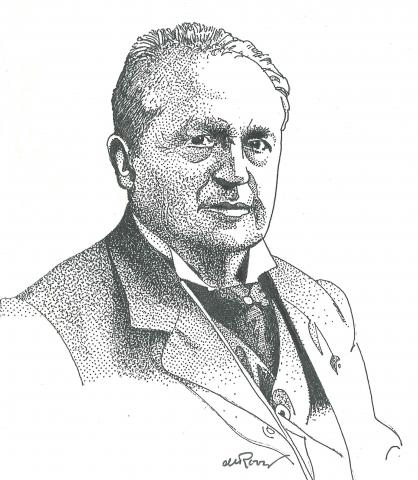A revised and updated version of
Abraham Kuyper: An Annotated Bibliography 1857-2010 by Tjitze Kuipers (2011)
You can buy a printed edition of this book on the site of the publisher.
1920
Het was in mijn nog steeds aanhoudende lijdenstoestand een verkwikking voor mijn hart, dat ge mijner nog gedenken wildet en dat gij het deedt op zoo innige en deelnemende wijze. Geheel een reeks van jaren was mij uw moedig en talentvol opkomen voor onze bezielende beginselen een oorzaak van dankbare vreugde, en het is mij ook nu een verheuging, waar ik niet genoeg voor danken kan, dat ik van uw zoo onverwachte uitbreking in verhoogde kracht nog getuige mag zijn. Verrijze spoedig uw eere-gebouw. En zij het mij, vóór ik ten grave daal, nog gegund den triomph van uw bezielde inspanning te mogen beleven. Kuyper.
This was the final telegram in a long series of cabled exchanges between Kuyper and the annual meetings of the Dutch Federation of Young Men’s Associations on Reformed Principles, which met annually on Ascension Day. The annual meeting recalled “with much gratitude” Kuyper’s “great importance” for the church and the fatherland and expressed the hope that by seeing God bless his work he would experience a sense of grateful joy as he grew older. The telegram was also included in De Utrechtsche Bondsdag 1920 ([Zwijndrecht]: Bondsbureau, 1920, pp. 52–53), which was published shortly after the annual meeting.
Kuyper had been ill since November 1919. The short reports in De Standaard spoke alternately of bronchitis, shortness of breath, influenza, arteriosclerosis, and dizziness. The “persistent state of suffering” continued until his death on November 8, 1920 (cf. 1921.01). Kuyper’s allusion to “your honorable building” refers to a building campaign for a central federation office. The office was established in Amersfoort and first used early in September 1920.
Kuyper was not involved with the establishment of either the Reformed Young Men’s Association in 1887 or the federation in 1888. The Rev. J.E. Vonkenberg, chairman of the federation from 1888–1920 and its director from 1920–1923, was instrumental to the formation of both. Kuyper took center stage after he charted a course of action for the federation in 1893.06 and gave it its program in 1897.06. By 1920 the federation numbered 700 affiliated societies and 17,000 members.

